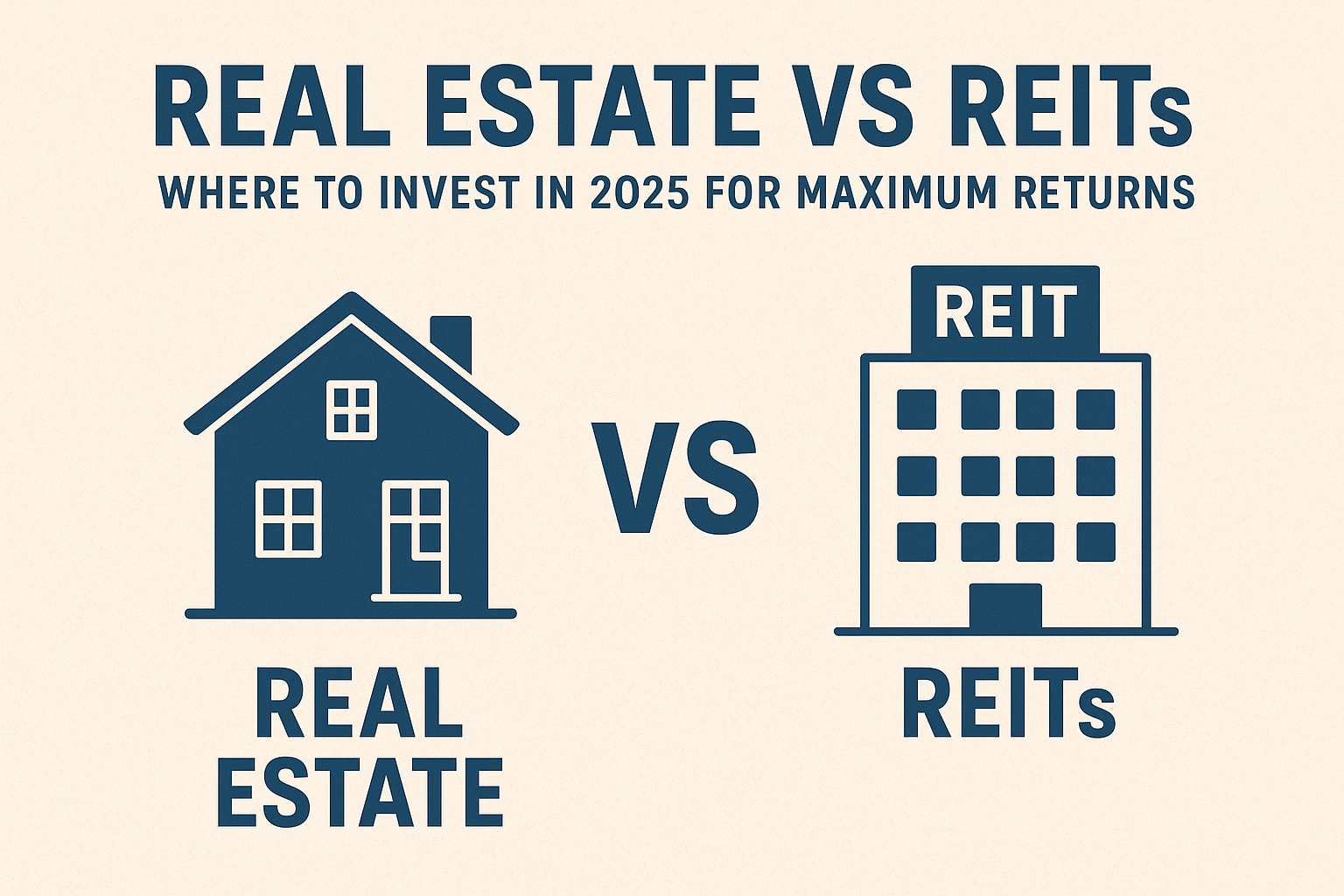Investing in real estate vs REITs has become a hot topic for investors seeking long-term wealth creation. While traditional real estate investment involves buying physical property, REITs (Real Estate Investment Trusts) allow investors to gain exposure to real estate without owning the property directly. Both options come with distinct advantages and risks, making it essential to understand them before deciding where to invest in 2025.
In this article, we explore real estate vs REITs, highlight their benefits and challenges, and guide you in choosing the right investment for your financial goals.
Understanding Real Estate Investment
Real estate investment involves purchasing tangible properties such as residential apartments, commercial spaces, or land. Returns typically come from property appreciation and rental income.
Advantages of Real Estate Investment:
- Tangible Asset: Direct ownership of property provides security and control.
- Appreciation Potential: Properties in growing cities or high-demand areas often increase in value over time.
- Rental Income: Generates steady cash flow when leased.
- Tax Benefits: Expenses like mortgage interest, property taxes, and depreciation can reduce taxable income.
Challenges of Real Estate Investment:
- High Capital Requirement: Buying property requires significant upfront investment.
- Low Liquidity: Selling real estate can be time-consuming and costly.
- Maintenance Costs: Property upkeep and repairs add ongoing expenses.
- Market Risk: Property values may decline due to economic downturns or oversupply.
Understanding REITs
REITs are companies that own, operate, or finance income-generating real estate. Investors purchase shares in a REIT, similar to stock, gaining exposure to property returns without physically owning the asset.
Advantages of REIT Investment:
- Liquidity: REIT shares are traded on stock exchanges, making buying and selling easy.
- Lower Entry Point: You can start investing with a relatively small amount of capital.
- Diversification: REITs often hold multiple properties across different sectors and locations, reducing risk.
- Regular Income: Many REITs pay dividends from rental income, often higher than typical stock dividends.
Challenges of REIT Investment:
- Market Volatility: Share prices can fluctuate with the stock market.
- Limited Control: Investors cannot influence property management or sale decisions.
- Tax Considerations: Dividends may be taxed differently than property capital gains.
Real Estate vs REITs: Key Differences
| Feature | Real Estate | REITs |
|---|---|---|
| Ownership | Direct property ownership | Indirect ownership via shares |
| Liquidity | Low | High |
| Initial Investment | High | Low |
| Income | Rental income + appreciation | Dividends from rental income |
| Management | Active involvement needed | Managed by professional teams |
| Risk | Market, location, property-specific | Market and sector volatility |
Where to Invest Now?
Choosing between real estate vs REITs depends on your financial goals, risk tolerance, and investment horizon:
- Long-Term Growth & Control: Direct real estate investment suits investors seeking asset growth and property control, especially in high-demand or emerging areas.
- Liquidity & Passive Income: REITs are ideal for investors who want market liquidity, diversification, and steady dividends without property management responsibilities.
- Balanced Approach: Some investors adopt a hybrid strategy—owning property for long-term wealth and investing in REITs for liquidity and diversification.
Conclusion
Both real estate investment and REITs offer viable paths to wealth creation but cater to different investor preferences. Real estate provides tangible assets, long-term appreciation, and direct control, while REITs offer liquidity, diversification, and passive income. Evaluating your goals, risk appetite, and current market trends will help you make a well-informed decision and optimize returns in today’s evolving investment landscape.








Comments (0)